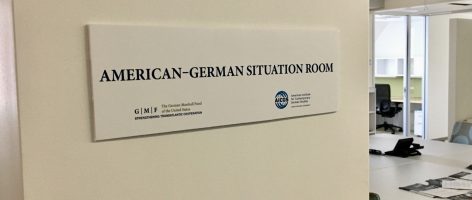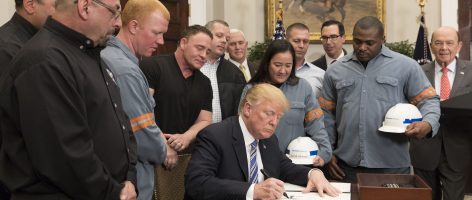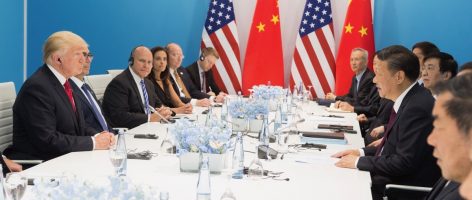
Jörn Quitzau, AGSR Fellow
AGI is pleased to welcome Jörn Quitzau as an AGI/GMF Fellow with the American-German Situation Room in Washington, DC, in April 2018. Joern Quitzau (PhD, University of Hamburg) is a Senior …
How Germany can reframe the US-China trade debate
By Peter Rashish in Handelsblatt Global on April 4, 2018.

Transatlantic Cooperation on Blockchain: Getting Ahead of the Curve
To great relief around the world, in mid-March Angela Merkel was sworn in as Federal Chancellor for the fourth consecutive time. This puts an end to the almost six-month long …

Trade Imbalances: Does the German Current Account Surplus Need to Be Corrected?
U.S. president Donald Trump has recently imposed tariffs on imports of steel and aluminum. The goal of his protectionist approach is to protect the domestic industry against competition he views …

National Myths are an Unreliable Guide to Trade Policy
March Madness: it would be tempting to describe recent U.S. trade policy that way. First, the Trump administration imposed tariffs of 25 percent on U.S. steel imports and 15 percent …
Recent Authors
AGI provides knowledge, insights, and networks as tools to solve the challenges ahead.
Support Our Work
Steel Tariffs are a Distraction from Transatlantic Cooperation on China
The White House’s decision on March 8th to impose tariffs on imported steel and aluminum is not without precedent: President George W. Bush did something similar in 2002 when there …
Judy Asks: Is Europe Ready for a Trade War with Trump?
Featuring Stephen Szabo via Judy Dempsey’s Strategic Europe on March 14, 2018.

Trump’s Tariff Policy Present – and Yet-to-Come
Trump Rescinds Steel, Aluminum Tariffs Amid Concerns for Auto, Construction Industries Washington, December 20, 2019 – Stating that he wanted to avoid “too much of a good thing” for …
„Die EU sollte sich nicht provozieren lassen“
Der US-Handelsexperte Peter S. Rashish über Trumps Strafzoll-Drohungen und die Folgen. Featuring Peter Rashish with the Sächsische Zeitung on March 3, 2018.
Mehr als jeder zweite Deutsche hält Beziehung zu USA für zerrüttet
Featuring Peter Rashish via Handelsblatt on February 28, 2018.

Germany’s Budget Surplus: Is Too Much of a Good Thing a Bad Thing?
Many who are familiar with Germany and German culture know that saving money and only spending money that one has is a very German trait. Only 36 percent of Germans …

U.S. Trade Policy: Clearing the Brush – or Pulling up Stakes?
The Trump administration has been in office for a little over a year now, and it is becoming clear there are two ways to view its approach to trade policy. …



